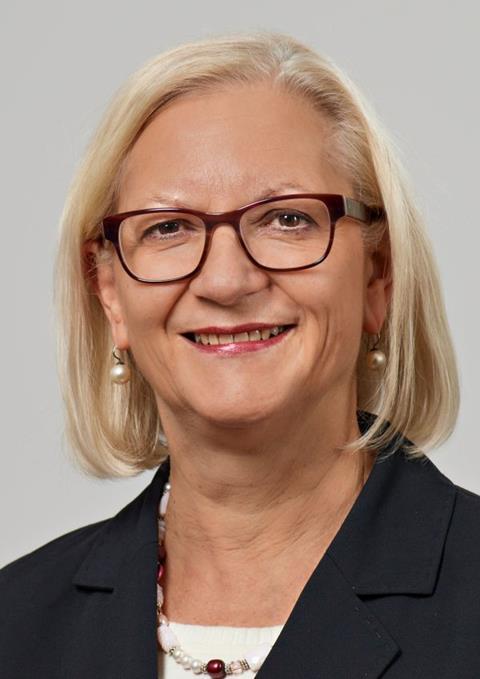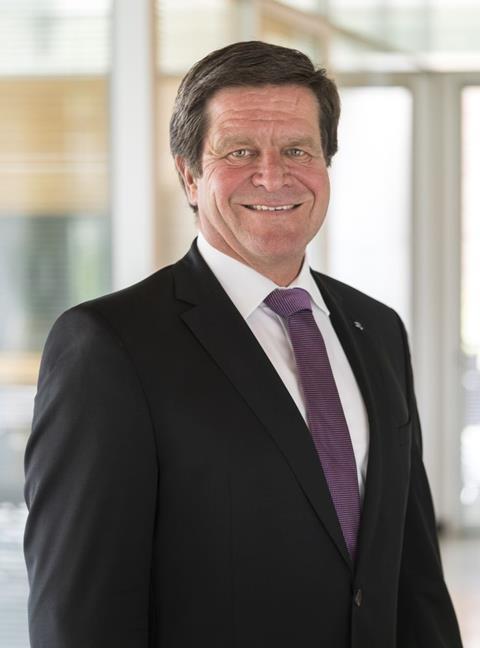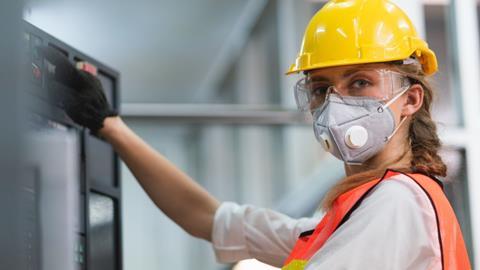Vera Fritsche, Advisor at the VDMA Food Processing and Packaging Machinery Association, tells Elisabeth Skoda about the challenges and opportunities for the German packaging machinery industry in 2020, looking at the impact of the coronavirus pandemic and beyond. We also gain insights from two German machinery companies to see how they have been faring in 2020.
The German packaging machinery industry exports its machines and equipment to more than 100 countries worldwide, generating more than 80% of its turnover abroad. In 2019, German manufacturers exported machinery and equipment worth €5,986 million, an increase of 2.3% over the previous year. Of these exports, half went to Europe (2019: €2,993 million, up 4%), 23% to Asia (2019: €1,354 million, up 16%) and 15% to North America (2019: €886 million, up 8%).
The coronavirus pandemic poses major challenges for companies. Especially at the beginning of the pandemic, there were massive interruptions in the supply chains. Parts and components that had been ordered from China, for example, could no longer be delivered. In addition, there were also delivery failures from Italy, Austria and within Germany. This led to significant disruptions in the operating process, disruptions in production and in some cases even to production downtime.

The disruptions in the supply chains have now decreased, but the order situation is still tense. At the beginning of the pandemic, for example, companies not only booked fewer orders from Europe, but also from Asia and North and Latin America. The decline in orders was particularly sharp in May. As a result, companies were able to book almost a quarter fewer orders than in the same month last year. Orders from euro partner countries fell by more than half and those from non-euro countries by 10%. The situation eased slightly in June and July. In July, however, an otherwise strong month for orders, 6% fewer orders were received than in the same month last year.
The VDMA's 7th Corona Flash Survey of July 2020 shows that almost 80% of companies surveyed in the food processing and packaging machinery sector are reporting noticeable to serious declines in incoming orders.
Border closures and quarantine measures continue to prevent companies from sending fitters and technicians to their foreign customers, which means that commissioning and final acceptance on site are not possible. Nor can foreign customers travel to their machine suppliers in Germany to test and accept their machines. According to the VDMA Corona survey, travel and residence restrictions represent the greatest challenges for the companies surveyed. This leads to a delay in the acceptance of machines and systems by the customer. Occasionally, packaging machines therefore carry out factory acceptance tests via video live stream, and the commissioning of new systems as well as on-site maintenance tasks are sometimes carried out virtually. But not everything can be done digitally or virtually. Especially in sales, personal discussions are irreplaceable.
Just over 30% of all packaging machines manufactured in Germany are purchased by customers worldwide from the food industry and around 20% from the pharmaceutical industry. These industries increased their production during the pandemic and the demand for spare parts increased. In June 2020, German companies delivered 6% more parts for packaging machines (105 million euros) than in the same month last year.
Outlook
With the easing of government restrictions, demand for machinery will also recover rapidly. This will be driven in particular by the increasing global demand for hygienically packaged and safe food and pharmaceutical products.
However, the weak demand for packaging machinery will still have a noticeable effect on production and thus turnover in the second half of the year. According to the Corona survey, almost 60% of the companies surveyed expect a decline in turnover of between 0 and 20% in 2020. Provided that the corona pandemic does not lead to renewed, far-reaching disruptions in the supply chain and demand, sales should be back in the plus range in 2021.
2020 beyond coronavirus
The often very emotive discussion about plastic packaging moves not only the food and beverage manufacturers, but also the packaging machinery industry, as more than 60% of all food and beverages worldwide are packed or filled in plastic packaging, whether it is bags, films, bottles, trays, cups or other containers.
The ‘European strategy for plastics in the circular economy’ is at the heart of the circular economy package adopted by the EU Commission in January 2018. It contains a large number of measures that must be implemented in the coming years with concrete targets in the individual member states. The aim of the strategy is to use plastics according to the criteria ‘Reduce, Reuse, Recycle’. For example, by 2030 all plastic packaging should be reusable or cost-effectively recyclable. Higher recycling rates for plastic packaging and increased use of recyclate in new packaging are also demanded. These demands are already legally anchored in Germany in the Packaging Law, which came into force in 2019.
All these are not only topics for the packaging machinery industry, because here the companies which bring packaged products to the market have a duty. They have to take recyclability into account as early as the packaging design and material selection stage, while at the same time meeting the diverse requirements for packaging such as product protection and shelf life. This is where the packaging machine manufacturers come into play.
They were already involved in the development of packaging in the past and are even more so today. Innovative packaging solutions are developed together with packaging manufacturers and users so that they can be efficiently processed on the machines. As a result, the packaging machinery industry already has appropriate solutions to meet the requirements of legislation. It offers innovative technologies for all materials and packaging as well as for the most diverse needs. In addition, the companies provide advice on processability and design for recycling. In this way, the industry is helping to reduce packaging waste, recycle more and take sustainability into account in the design of the packaging.
SOMIC's view – planning and organization is key
SOMIC Verpackungsmaschinen GmbH & Co. KG has fared well during the crisis due finding new ways of organising processes, says Stefan Julinek, sales director at SOMIC.
"The crisis has shown that new ways of organizing are also possible and work. Within a short time, 'mobile workplaces' were implemented at SOMIC, as far as possible, and new communication channels were established. Production processes were also adapted accordingly. Clear rules of conduct and the introduction of shift work in some departments of the company enabled distances to be maintained and possible chains of infection to be prevented.
He says that the company made early preparations, which allowed it to maintain production at full capacity.
"Due to the good order situation we never had to think about short-time work at any time, and thanks to the above-mentioned measures, we also did not have to deal with any cross-departmental cases of illness and got through the first wave of infection well."
Serving the food industry, SOMC did not experience a significant decline in orders.
“We expect that the demand will remain lively and so we look to the future optimistically. In recent weeks we have been able to return to a ‘new normality" in our operations step by step by taking various precautions."
Reifenhäuser's view – flexibility and sustainability count

Reifenhäuser Group's CSO Ulrich Reifenhäuser identifies some market uncertainty regarding new investments, but also has noticed sectors with increasing demands.
"This is true especially for our nonwovens lines, as they are needed to produce the filter-material for breathing masks. But it is also true for film lines, that produce materials for products related to food and medical safety applications. High performance plastic films make an important contribution to prevent the spread of diseases."
He points out that Reifenhäuser saw the competitive advantage of having flexible production facilities, providing different applications.
"Due to the global shortage of medical protective clothing for instance, as a machine manufacturer, we switched a state-of-the-art Reifenhäuser Ultra Stretch Blownfilm pilot line from the production of recyclable All-PE pouches to certified medical protective film. And some of our customers have adapted their production as well. So today, more than ever, we are emphasizing to our customers that flexibility is essential to react to a variety of market requirements – during a crisis but also beyond."
He anticipates that sustainability will come to the forefront of the public debate again.
"Sustainability, a topic around which it has become quiet in recent months, will become more important once again. The pandemic made us aware of the necessity of high-quality packaging. One more reason to develop sustainable solutions and to establish a functioning circular economy for the industry. We are trying to push forward sustainability and the circular economy, for example by providing technical solutions for the production of monomaterials or by making recyclable packaging identifiable within the waste sorting process as part of the R-Cycle [link] joint initiative. Making packaging more sustainable will be a priority, especially when the pandemic is over."














